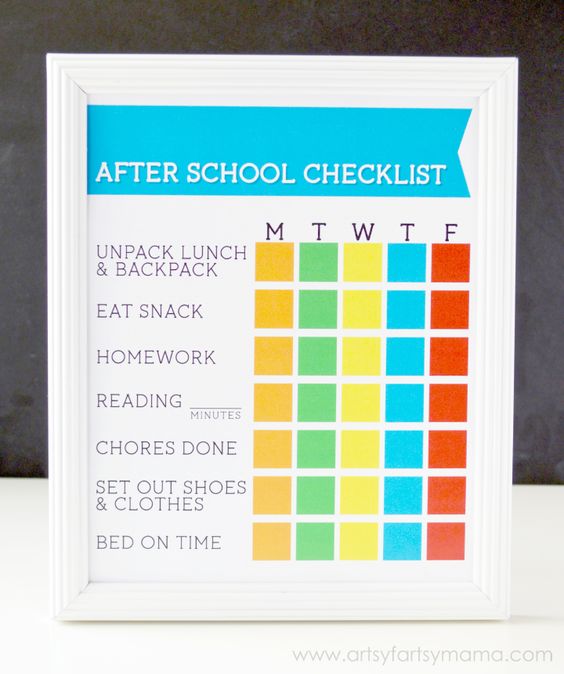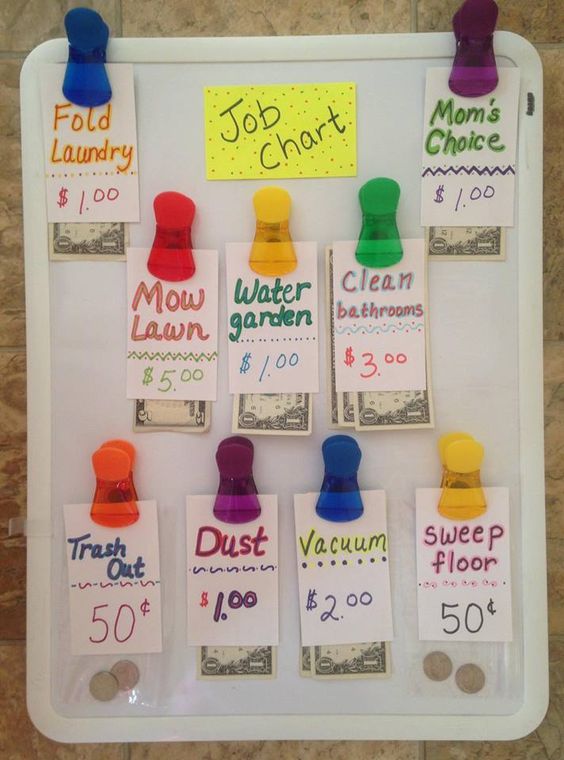Are you the type of girl who cringes just a little bit when somebody says, “It’s good for you”? Well, we’ve got good news and bad news. The bad news is that this blog is all about those things that are “good for you” that might not be so much fun: Chores. But the good news is that learning to deal with everything involved in getting those chores done will serve you well both in the future and also right now as you deal with all the complicated details involved with planning your Quinceanera! So let’s take a look at the benefits of chores that will make you a better Quinceanera and a better woman.
1. Respect for Authority: Of course, you’re already respectful to your parents, else they probably wouldn’t let you have a Quinceanera! But your Quince puts extra demands on you, both from your family and from your Church. If your parish has asked you to attend some meetings or a retreat or participate in some kind of community or parish service, consider those expectations to be “positive chores.”
And not to jump the gun, but one day you’ll probably get married. If you want to marry in the Church, they’ll require certain things of you in preparation for your wedding. So if you can handle your Quinceanera Church Chores gracefully, just think how easy it’ll be a few years from now to be a gracious bride!
2. Taking Responsibility for Yourself: We should really call this is being responsible to yourself. Yes, you’re obligated to clean up after yourself, but when you accept responsibility for your minor messes, you’re actually practicing to be responsible for your actions when it comes to your place in your larger world.
3. Experience Consequences: You already know that not doing homework can risk your grades and that talking back to your folks usually results in some kind of punishment. Nobody is perfect, but the more you try to finish the chores assigned to you—and still keep your grades up and everything else you’re involved in—the less harsh those consequences will be.
Learning to do the chores assigned to you in the timeframe in which you’re expected to do them right now may well save you being written up for being late to work or losing a promotion—or maybe even losing your job—by not getting things done on time or not getting them done as correctly as possible.
4. Personal Accountability: While you’re living at home, if you build the habit of keeping your personal space in order—and can learn to do it without your parents reminding you all the time—you’ll have a lot easier time of it when you live in a dorm, a shared apartment, or an open workspace on the job.
You’ll probably run into some situations when your brother or sister makes a mess in your personal space or your area of responsibility. No, it’s not fair, but it happens. To short-circuit a family feud, ask your parents ahead of time how they want you to handle things.
They may ask you to clean up anyway if it’s “community stuff” like newspapers or somebody else’s laundry that just needs to be thrown in the hamper. But if your siblings leave their personal things lying around in an area you’re supposed to keep clean, ask if maybe you can take their things and put them respectfully by their bedroom door or in some other designated place.
Figuring out how to deal with family members who make a mess in your personal space at home will make it a lot easier to negotiate a tidy space with a roommate or coworker.
5. Prioritize and Organize: Probably the last thing you want to add to your schedule is chores around the house. Whether you really want to earn that A+ and need more time to study, or just want the chance to sit in front of the TV for a little while and do your nails, chores can seem to get in the way.
One trick is to sit down with your folks and ask them when exactly each week they want you to do which task including what day if possible. Some chores will be more flexible than others. Also, ask them which tasks take priority over others. For instance, it’s probably more important to have clean laundry than to tidy up the family room, so ask them if you can put laundry higher on the list. Then make sure you put your chores on the schedule before downtime so that you can really enjoy your downtime!
6. Learn to Work with Schedules and Deadlines: There’s actually a trick to making sure you get your chores done—use a weekly planner! If you already have one for school assignments, pencil your chores into the schedule. A weekly planner that has daily time slots is even better.
Let’s hope you never try to have this much on your plate every single day, but if you learn to use the planner and put everything down—homework, chores, band or sports practice, piano lessons or babysitting the neighbor’s kids, volunteering at the library and a little bit of fun with your friends—in the order in which each needs to get done, it’ll be easier to make it all happen.
Sure, once in a while you’ll get stuck with a chore that you have to do right before you go to bed instead of watching even a ½ hour of your favorite show, but with the timeline, you won’t cheat yourself out of fun nearly as often.
7. Sensitivity to Others: There are a couple of fundamental reasons why learning to be sensitive to others helps you in the world. First, any chores you’re given that have to do with cleaning are important because exposure to germs is dangerous and can cause disease. That’s why your folks may be a little finicky regarding how you clean the bathroom or the kitchen counters and sink. Second, in the work world, you’re bound to run across people who are a little picky even when you don’t think they need to be. If you’ve practiced handling different personalities at home, it’ll be easier for you on the job.
Here’s a perk you might not have thought of: Learning to handle the different personalities of your damas and chambelanes is a perfect example of cultivating sensitivity to others. If you’ve figured out how to manage different personalities at home, dealing with your court of honor—and later with your coworkers—will be a piece of cake!
8. Pride in your Work: It’s actually good for your spirit to look at a clean bathroom sink or a neatly folded pile of laundry and pat yourself on the back for getting it done. Lots of chores will seem insignificant, but in the workplace, a lot of details will seem just as trivial. If you can learn now to take pride in the little things, then something as small as keeping your desk tidy at work will feel satisfying.
9. Money Management: By the time your Quinceanera rolls around, you may either have been babysitting or helping out a neighbor in order to earn a little money. Working outside the house has already taught you that if you don’t show up for work, you don’t get paid. But you also have to learn to fit the chores your folks ask of you into your money-earning schedule.
This might be easier if you’re getting an allowance that’s based either wholly or in part on whether you get your chores done. But either way, you’ll need to figure out how to schedule whatever you need to do in order to have a little cash in your pocket.
10. Practice Reigning in your Emotions: Admit it. Sometimes even when you know for sure your parents’ request is reasonable, having to do a chore is going to tick you off. There’s nothing wrong with you. It’s just human nature. But keeping your temper in check is one of the best tools you can develop to help you survive in the world.
A Note of Encouragement:
You don’t have to act like a Pollyanna, thinking you always have to grin like an idiot through everything. Practice cultivating a “serious, studious look” that’s the same as if you’re concentrating on a problem at school. Then on days when it’s really bad, you don’t necessarily have to smile, but you won’t frown at everybody either.
If someone in your family walks by, shoot them a quick smile then get back to work. If they ask, “Why are you so quiet?” you can just say—with all honesty—“I’m thinking about a project for school” or something to that effect. Besides, isn’t there always some type of project for school?!
In the workplace, it can be the same way. You may feel stuck doing some task that feels unbelievably menial and that threatens to put you in a permanent bad mood. But if you’ve practiced the “serious student look” you can use that at work. And again if someone asks, you can say something like, “I’m just really absorbed in this task.”
It works like a charm almost every time!
For a little advice on handling all the different personalities in your Quinceanera court, check out our blog on dealing with Dama Drama: http://qbydavinci.com/blog/how-to-ditch-the-dama-drama-dodge-quincezilla-syndrome/



















Comments